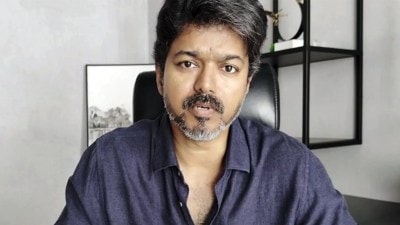Inspirational Akram can change course dramatically
ARJUNA RANATUNGAArjuna Ranatunga was one of the prime movers in setting the pattern in 1996, with his batsmen attacking from the outset, ...

ARJUNA RANATUNGA
Arjuna Ranatunga was one of the prime movers in setting the pattern in 1996, with his batsmen attacking from the outset, looking to post and hunt down large targets. A clue to his motives in this World Cup will come when he pins up the batting order at Lord’s for the clash with England. If Romesh Kaluwitharana partners the dashing Sanath Jayasuriya then it will indicate he intends to pursue large totals. However, if he substitutes the more conservative Marvan Atapattu then it will mean he’s lowered his sights a little and is concentrating on posting a competitive total.
Ranatunga leads from the front, but he may be inhibited, as every match referee will be watching him like a hawk after the Adelaide Oval debacle. Where he was able to frustrate opponents out with a variety of steady spinners backing Muttiah Muralitharan in 1996, this time he needs early wickets from his pace bowlers.
STEVE WAUGH
Steve Waugh is a solid captain, who inspires his team by batting wellwhen the side is in trouble. He’s prepared to try things, but mainly when his side is batting, so if Australia is in trouble in the field look for Shane Warne or Glenn McGrath to get the call. As a player Waugh is well prepared, so his team is meticulous in planning and the motivation for Australian teams is simply donning the cap. Under Waugh Australia has lost two finals because he was unable to curtail team anger, which led to the thought process being clouded. He has to overcome this problem.
WASIM AKRAM
Like his cricket, Wasim Akram’s captaincy is aggressive and inspirational and if things aren’t going well he can grab the ball or the bat and change matters dramatically. Wasim is a flexible skipper and as the innings unfolds he is generally on the look out for wickets. Occasionally he becomes defensive, like when the South African batsmen constantly swept Mushtaq Ahmed in 1996.
BRIAN LARA
Brain Lara is moody and hence the swings in his captaincy. A brilliant player, he bats andlives on instinct and unless he convinces the team his main interest is winning rather than personal satisfaction, it is difficult to command total loyalty. He understands the value of spin bowling better than any of his three predecessors, but still relies heavily on Curtly Ambrose and Courtney Walsh when a big breakthrough is needed.
MOHD. AZHARUDDIN
Mohammed Azharuddin is a steady captain who expects his team to play smart cricket and follow his excellent example in the field. There were signs in the Sharjah final that he was more prepared to converse with his bowlers, following on from Ajay Jadeja’s example. When India needs a wicket Azharuddin often turns to Anil Kumble and in those situations he’s innovative and attacks the batsman.
HANSIE CRONJE
Hansie Cronje provides his team with similar inspiration to Steve Waugh. The South African team plan their every move and whilst this can be helpful, it can also be counter productive if they don’t adapt when the opposition plays well.This leaves Cronje vulnerable to a brilliant innings like the one Brian Lara produced in the quarterfinals to upset South Africa in 1996.
ALEC STEWART
Alec Stewart is solid and reliable, but you get the impression his tactics come straight from the MCC manual. He’s had a poor run with the bat lately and this will have to change if he’s going to lead England into the latter stages of the tournament. Alec’s motivation revolves around inane chatter on the field, which has limited value when things go wrong. Stewart will look to contain apart from occasional forays from Darren Gough and Alan Mullally.
STEPHEN FLEMING
Stephen Fleming is a good skipper who sets a great example with the bat and his safe catching. He’s prepared to attack opponents, but there isn’t much variety in the attack, which limits his aggressive options to Daniel Vettori using flight to buy a wicket. New Zealand is a side that lacks match winners either with bat or ball, but Fleming gets the best out of them withdogged tenacity and tremendous desire in the field.
ALISTAIR CAMPBELL
Alistair Campbell has produced some good results with the Zimbabwe team, by utilising similar methods to Stephen Fleming. Campbell has a bit more variety than Fleming with two leg-spinners, but Paul Strang and Adam Huckle may not play a lot of games together if the conditions are damp and not conducive for them.
Zimbabwe has a lot of players who do a bit of everything and their spirit is excellent, but their ability to spring a surprise will depend on whether Campbell can get them to believe they can beat, rather than just push the top sides.



- 01
- 02
- 03
- 04
- 05




























